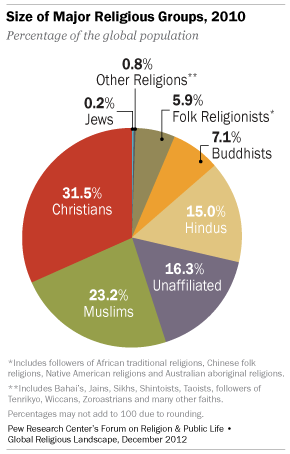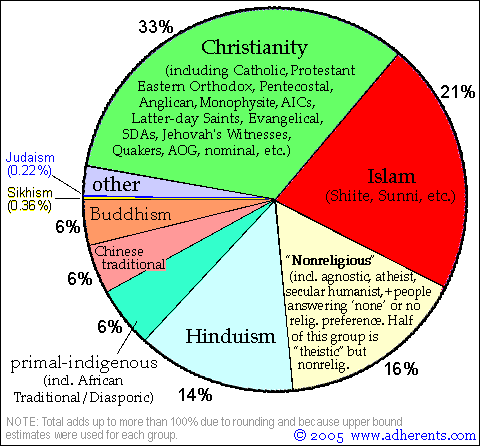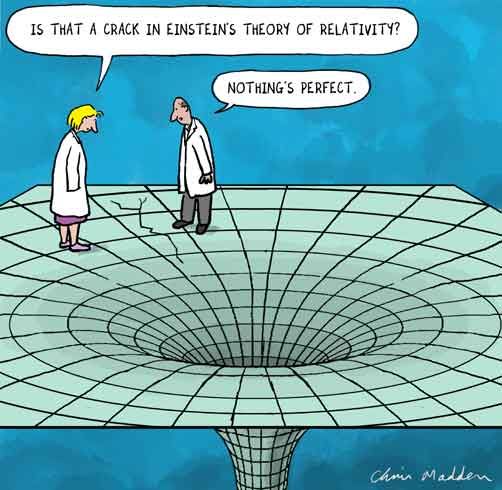This is from a series I'm doing on disproving the big block of BS that Royce uses against the M scale and my 200 studies. After regaling them with all this material which they could not answer, they began saying things like "you digging it deeper." be sure and read all of this then look at their reactions to follow.
IV. Criticism 4
this is no 4 in the big blog of Royce's propaganda he runs against Hood
and the M scale. It's disproved empirically. all you have to do is read
the study. If you read the study you see they do not agree with Katz but
with Hood.
Francis Vincet Anthony, Carl Sterkins, Chris AM Hermans.
A comparative Study of Mystical Experience Among Christian, Muslim, and Hindu Students,
http://www.scribd.com/doc/79669550/A...mil-Nadu-India
"Our findings also point to the limitations of
Hood’s Mysticism Scale (already foreseen by him) when it comes to
comparing totally heterogeneous religions such as Semitic and Eastern
religions (Hinduism and Buddhism). Finally, we think that the major
theoretical problem with regard to mysticism still stands: Is there a
core structure of mystical experience or does it imply diversity? In
order to answer this fundamental question, we need more comparative
research among members of different religions in different geographical
contexts."
From page 107:
This statement is far from saying that the M scale is bad or that it
doesn't' work. These guys do not think they have disproved the M scale,
they think they have improved it.
[ (1) they are merely denying the common core--Hood proves otherwise. they also admit Hood is aware of the criticism.
(2) their position is not necessarily opposed to mystical experience]
"Hood developed a Mysticism Scale based on the theoretical work of
Stace. The scale was tested by Hood and others in a comparative
perspective. Using an abridged version of Hood’s Mysticism Scale, we
join the debatewith a study of a much larger number of Christian,
Muslim, and Hindu respondents (1,920 college students)living in Tamil
Nadu, India. Our empirical analysis yields a moderately reliable model
of mystical experience that permits comparison between the three
religious traditions. We argue for the usefulness of a comparative model
of vertical mysticism that combines with the complementary common
characteristics of noetic quality and ineffability. Vertical mysticism
has a revelatory, ineffable character and is comparable in the
experience of adherents of the Christian, Islamic, and Hindu
traditions."
(3) They use an abridged version
"Using an abridged version of Hood’s Mysticism Scale, we join the
debate with a study of a much larger number of Christian, Muslim, and
Hindu respondents (1,920 college students)living in Tamil Nadu, India.
Our empirical analysis yields a moderately reliable model of mystical
experience that permits comparison between the three religious
traditions. We argue for the usefulness of a comparative model of
vertical mysticism that combines with the complementary common
characteristics of noetic quality and ineffability. Vertical mysticism
has a revelatory, ineffable character and is comparable in the
experience of adherents of the Christian, Islamic, and Hindu
traditions."
they point out Hood's scale is proved empirically:
"The measurement instrument is based on Hood’s Mysticism Scale.This
scale has been proven empirically to be acceptable in diverse cultural
contexts and religious traditions (Hill and Hood1999; Holm 1982; Hood
1975; Hood et al. 2001)."
(4) they claim they better results with a bigger sample but not that M scale doesn't work
"We argue for the usefulness of a comparative model of vertical
mysticism that combines with the complementary common characteristics of
noetic qualityand ineffability. Vertical mysticism has a revelatory,
ineffable character and is comparable in the experience of adherents of
the Christian, Islamic, and Hindu tradition"
[that's essentially admitting that the M scale is useful]
(5) not only is their view not anti-M scale it's pro mystical and they
have quibbles with the particulars of Stace and Hood from within the
realm of msytical fandom.
"In our view this state of unity belongs to the realm of mystical
consciousness and not so much to that of interpretation. Empirical
research supports the claim that mystical consciousness and its
interpretation can be relatively independent (cf. Hood and Williamson
2000)" note on that quote the use Hood to support their finding"
(6) their own instrument study is based upon the M scale and they say the M scale is proved to be acceptable:
"The measurement instrument is based on Hood’s Mysticism Scale.This
scale has been proven empirically to be acceptable in diverse cultural
contexts and religious traditions (Hill and Hood1999; Holm 1982; Hood
1975; Hood et al. 2001)."
then it lists other studies that come to that conclusion.
(7) The above statement was put over as "a devastating" criticism of the
M scale but is actually in favor of it. The person quoting didn't know
what he is reading.
The quote says two major things: (a) the major problem of mysticism is
the core structure, the common thesis is what they mean. (b)
"Limitations" they say with the M scale, not that it's totally wrong but
that it's limited. in what? in "when it comes to comparing totally
heterogeneous religions such as Semitic and Eastern religions (Hinduism
and Buddhism)." In other words it limited in comparing two totally
different kinds of cultures in two different languages with different
religions. Gee really? Limited hu? The common core is a major issue.
This would be like saying "weather or not god exists is still a major
questoin." That's like saying a criticism of Hawking's work on time is
that it doesn't solve the riddle of why we exist. This is big stuff, how
much can we expet one study to do.
Hood has proved the common core thesis with empirical research. when
they take the names out and the doctrines out and just look at the
descriptions of the experience, they are the same. that is a common
core. Hood documents this in his artilce that is in the McNamara book:
Ralph Hood Jr. “The Common Core Thesis in the
Study of Mysticism.” In Where God and Science Meet: How Brain and
Evolutionary Studies Alter Our Understanding of Religion. Patrick
Mcnamara ed. West Port CT: Prager Publications, 2006, 119-235.
Google books on line version: URL
http://books.google.com.cu/books?id=...epage&q&f=true visited 8/20/2012
I've put these studies up time and time again, no one every read them or looked at them:
The M scale developed by Hood has been validated by many studies in
cross cultural context, while Greely’s Gallop Poll questions have been
used both cross culturally and longitudinally.
The two major exceptions to the lack of shared instrumentation are the
mysticism scale by Hood (1975) which has been used in quite a number of
studies by Hood and others, and the repeated use of certain questions in
survey research by Greeley and the Gallop Organization over a sixteen
year period.
Holm (1982) “mysticism and intense experiences” demonstrates another level of cross-cultural validation.
Method: The author translated into Swedish several Hood scales designed
to measure mystical experiences. The items describing religious
experiences drawn from William James, on Hood’s (1970) Religious Episode
Experience Measure (REEM) with narratives taken from Nordic
anthologies. Eighteen teachers of religion and psychology each
administered the scales to 6-9 persons.
Findings: The study replicated most of Hood’s findings with the same
instruments. “The results of our empirical study of mysticism in a
Finnish-Swedish environment largely coincide with Hood’s results in an
American environment…The cross-cultural testing that some of Hood’s
methods have received as a result of our research on another continuant
and in another linguistic area means that the results have received a
wider range of applications.
Holm (1982) presented a Swedish M scale administered to 122 Swedish
“informants.” Factor I correlated best to non Christian profiles, while
factor II worked best with those who had Christian assumptions. Holm
accounts for a general mysticism factor and general religious factor.
This parallels earlier research in Sweden (Solderblom—see Holm 82,
275-76) .
The M scale has been validated with Iranian Muslims.
In a mostly Christian American sample (N = 1,379), confirmatory factor
analysis of Hood's (1975) Mysticism Scale verified the existence of
Stace's (1960) introvertive and extrovertive dimensions of mystical
phenomenology along with a separate interpretation factor. A second
study confirmed the presence of these three factors in not only another
group of Americans (N = 188), but also a sample of Iranian Muslims (N =
185). Relationships of the introvertive and extrovertive factors with
the interpretation factor were essentially identical across these two
cultures, but the Americans displayed a stronger association between the
two phenomenology factors. In both samples, the interpretation factor
correlated positively with an intrinsic and negatively with an extrinsic
religious orientation, and the introvertive factor predicted
psychological dysfunction. Associations of the interpretation factor
with relative mental health appeared only in the Iranians. These data
offered general support for Stace's phenomenology of mysticism, although
the ineffability he linked with interpretation proved to be as much or
even more a feature of the introvertive experience, as hypothesized by
Hood.
The M Scale in Relation to other measurement scores.
The over all result demonstrates the superiority of Hood’s model (and
Stace’s categories) over other models. “Thus empirically there is strong
support to claim that as opporationalized from Stace’s criteria
mystical experience is identical as measured across diverse samples,
whether expressed in “neutral language” or with either “God” or “Christ”
references.” M Scale has been correlated to scores on standardized
personality measures in two studies. In 1985 Hood found that the
Minnesota Multiphasic Personality Inventory (MMPI) “did not correlate
with the M Scale. Different correlations of factors between factors I
and II were compatible with non pathological interpretations of
mysticism.” The score for the MMPI applies to people who are apt to lie
or present themselves in a favorable light to their own advantage. But
Hood argues that high scores on factor II (religious) may be due to the
fact that traditional religious people are less likely to engage in
deviant behavior. Thus the score doesn’t apply to them.
Spanos and Moretti (1988) directly correlated M scale scores with Tellegen and Atkinson absorption scale.
Ibid, 324
Ralph Hood Jr., W.P. Williamson. “An empirical test of the unity
thesis: The structure of mystical descriptors in various faith samples.”
Journal of Christianity and Psychology, 19, (2000) 222-244.
R.W. Hood, Jr., N.Ghorbani, P.J. Waston, et al “Dimensions of the
Mysticism Scale: Confirming the Three Factor Structure in the United
States and Iran.” Journal for the Scientific Study of Religion, 40
(2001) 691-705.
R.K.C. Forman, Mysticism, Mind, Consciousness. Albany: State University of New York Press, (1999) 20-30.
F.S. Brainard, Reality and Mystical Experience, Unvisited Park:
Pennsylvania State University Press. (2000). See also D.Loy, Nonduality:
A Study in Comparative Philosophy. Amherst, New York: Humanities Press.
David Lukoff and Francis G. Lu. “Transpersonal Psychology Research
Review Topic: Mystical Experience.” The Journal of Transpersonal
Psychology, vol. 20, no.2 (1988) 161
Ibid.
Spilka et al, 326
Dimensions of the Mysticism Scale: Confirming the Three-Factor
Structure in the United States and Iran. Hood, Ralph W. Jr., Ghorbani,
Nima, Watson, P.J., Ghramaleki, Ahad Framarz, Bing, Mark N., Davison, H.
Kristl, Morris, Ronald J., and Williamson, W. Paul. Journal for the
Scientific Study of Religion 40:4 (2001) 691-705
Spilka and Hood, 324.
Anthony does not say that M scale fails to sort out a true mystical
experience form a false one. that's the only thing my arguments claim
about it.
Atheist Reactions
sinaftersin:
Originally Posted by Metacrock

I'm going to add this study to the 200. Now I have 201.
sinafter sin says:
'the "200" number is made up anyways. whooopeeee.'
I counted them. why is it made up? He's never bothered to look at the big which I've linked to time and time again. It is a conservative ball park figure.
Radiology:
Meta, you continually ignore criticism of your point of view, and chug
on as if the criticism wasn't even made. You make unsupported claims,
and use references that in NO WAY support your claims, and continue to
pretend that they do. You refuse to show your sources. You backpedal in
the worst way.
You have zero standing whatsoever to accuse anyone of academic dishonesty - EVER.
Unsupported claims. I have the studies. I looked up all the studies sin his block then research the stuff again them. Look at how many studies I have down there and he says "unsupported." I did the research for the 200 studies. Unsupported!
on the same thread:
Teabagsalad
Hey Meta,
D'ya wanna borrow that shovel again?
another guy put me on ignore.
Originally Posted by
maybrick

I don't even need to read the thread you are talking about to know you have this backwards.
Don't confuse me with the facts. I don't need to read the material my mind is made up.
so I'm so totally dishonest becuase I have this huge body empirical studies that they refuse to read, but they know they are so bad.
my views are so flimsy becuase they unsupported. that means Royce doesn't' accept them. forge the 200 studies in academic journals they are no good becuase Royce says so.







